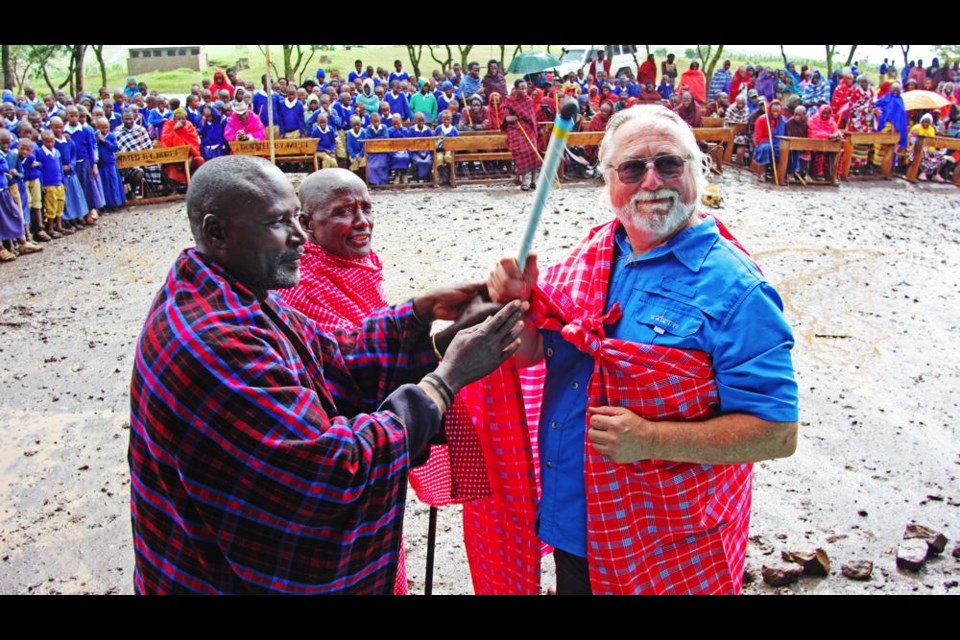WEYBURN – A couple with local ties to the Weyburn area, Ralph and Twyla Williams, paid a visit to Weyburn Rotary Club members to share details of their work in Tanzania, a project that has been supported by Rotary Clubs here and in Tanzania.
The Williams were in Weyburn to visit Ralph’s uncle and aunt, Roland and Lois Olson of North Weyburn. Ralph also spent time here as a youth as he graduated from Western Christian College when it was located at North Weyburn.
Currently they work as missionaries in Tanzania, in a Maasai village near the city of Arusha. Ralph helps set up rainwater collection systems, a project that gets about half of their funding from Rotary Clubs, while Twyla works with local women to create and market jewelry.
The Maasai are an East African tribe who mainly live in southern Kenya and northern Tanzania. The Williams have been working with them since 2016.
“It’s a big adventure,” said Ralph, as he explained how they have been developing relationships with the local villagers, and helping them build rainwater collection systems to provide them with a clean water supply.
As he noted, they cannot use well water as the village is located near the base of a small dormant volcano, and water from the ground has high levels of fluoride. Small amounts are good for bones and teeth, but large amounts are toxic to the body.
Rainwater collection systems have been set up for their home and church, and for the dispensary and the primary school in the village. The couple are now raising money to expand the rainwater collection system to provide a clean water supply for the entire village.
“It’s always going to rain, eventually,” said Ralph. “We’re trying to make our work reproducible, and sustainable, so if we’re not there, they can still put it together.”
For the school, before this system was built, students had to bring one litre of water every day, or else they couldn’t come to school. Sometimes that water was drawn from a ditch or other unsanitary source, and this water would end up being used to make the lunch for the students, said Ralph.
The system in place for the school has 75,000 litres of storage, with a pipeline to the kitchen, so clean water is provided for the students and for their food needs.
The new project is to install 21 10,000-litre tanks with a covering roof to serve the village, to provide clean water for about 3,000 residents in the vicinity, with a cost of about $30,000 US.
The area receives, on average, about 30 inches of rain a year with two rainy seasons, the main one from March to May, and the secondary one in November to December.
An issue arose when last year there was no secondary rainy season, which made the need for this system more urgent. The plan is to be able to accumulate and store water that can take them through a year with less rainfall, said Ralph.
The system collects rain water from the roofs of buildings, and is set up in a way to keep the water clean. Every square metre of roof will produce 10 litres of water if there is a one-cm rainfall, and 10 square metres can produce 250 litres from a one-inch (2.54 cm) rainfall, which is a typical daily rain during the rainy season.
For water usage, he and Twyla are able to keep it down to 60 litres a day by using gray water for watering gardens, and using shower water to flush the toilet with.
He’s also learned that the best way to keep good quality of water they paint the tanks to protect the water from UV rays, and to help keep the water cool.
“It’s unbelievable the difference it makes to the water,” said Ralph.
The couple are members of a Rotary Club in Arusha, a city with five Rotary clubs. In addition, Rotary clubs in Ontario have provided about half of the funding needed for the water collection systems, with churches providing the rest.





